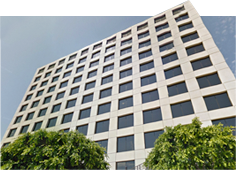The USCIS’ New Pre-Registration System for H-1B Cap Filings – How it Works
U.S. Citizenship and Immigration Services recently announced that they will begin implementing a new pre-registration system for processing H-1B petitions. The new system, which will launch in time for 2020 H-1B filings, will require employers to pre-register online prior to filing their petitions.
HOW THE PRE-REGISTRATION PROCESS WILL WORK
The new H-1B pre-registration system is meant to streamline the H-1B filing process by having employers complete an online registration form for each employee that they plan to sponsor. Only the most basic information would be required, including the names of the petitioning employer and the foreign national, as well as the proposed position. Employers would have approximately 14 days to file, ending on April 1st. As in the current process, an employer would only be permitted to file one position for a beneficiary, although a separate employer could sponsor the beneficiary for a different position. The USCIS would then run the lottery based on information in the pre-registration system (as opposed to their current strategy of selecting from full H-1B petitions received). If a pre-registered matter is chosen, an employer will then have 90 days to file the complete petition.
A PARTIAL CHANGE FOR 2019
While the current filing process will still be in place for April 2019, there will be a change in the way that the USCIS conducts the H-1B lottery. In previous years, 20,000 petitions have been first set aside for processing under the Master’s Cap, followed by 65,000 petitions that qualified under the Bachelor’s Cap. In the new system, the selection process will be reversed and the USCIS will first run the lottery for those holding a Bachelor’s degree, while the Master’s Cap winners will be selected afterwards.
THE FALL-OUT
- A win for employers
The new system will undoubtedly benefit employers, since they will receive a USCIS alert regarding which of their proposed petitions (if any) have been chosen for processing. Under the current process, an employer may end up filing five petitions, for example, and the USCIS may randomly select only one or two for processing. Many employers have considered this method as a waste of time, expenditures and effort. It has also discouraged some employers from filing H-1B filing petitions on behalf of foreign nationals. The new system will now allow employers to pre-register as many petitions as they desire, at no cost.
- A loss for beneficiaries with bachelor’s degrees
The new selection process would reduce the number of beneficiaries who only possess a Bachelor’s degree, favoring those with a Master’s degree instead. The U.S. government’s aim is to increase the number of winners who have post-graduate degrees, and decrease the number of foreign nationals who hold Bachelor’s degrees.
- A loss for all beneficiaries
Since the new pre-registration system is free, the number of registered petitions may rise dramatically, thereby decreasing each beneficiary’s chance of having their petition selected – no matter whether they are filing under the Master’s or the Bachelor’s Cap.
- A win for U.S. job seekers
As there is generally a much larger pool of H-1B applicants with Bachelor’s degrees, reducing their numbers is meant to give U.S. workers a competitive edge in the job market. This is directly in line with the Trump administration’s “Buy American and Hire American,” Executive Order, issued in April 2017.
It is still unclear how many ways in which the new pre-registration process will affect employers, foreign nationals, and the U.S. labor market in general. The true effect won’t be seen until April 2020, when the next H-1B Cap cases will be filed.






